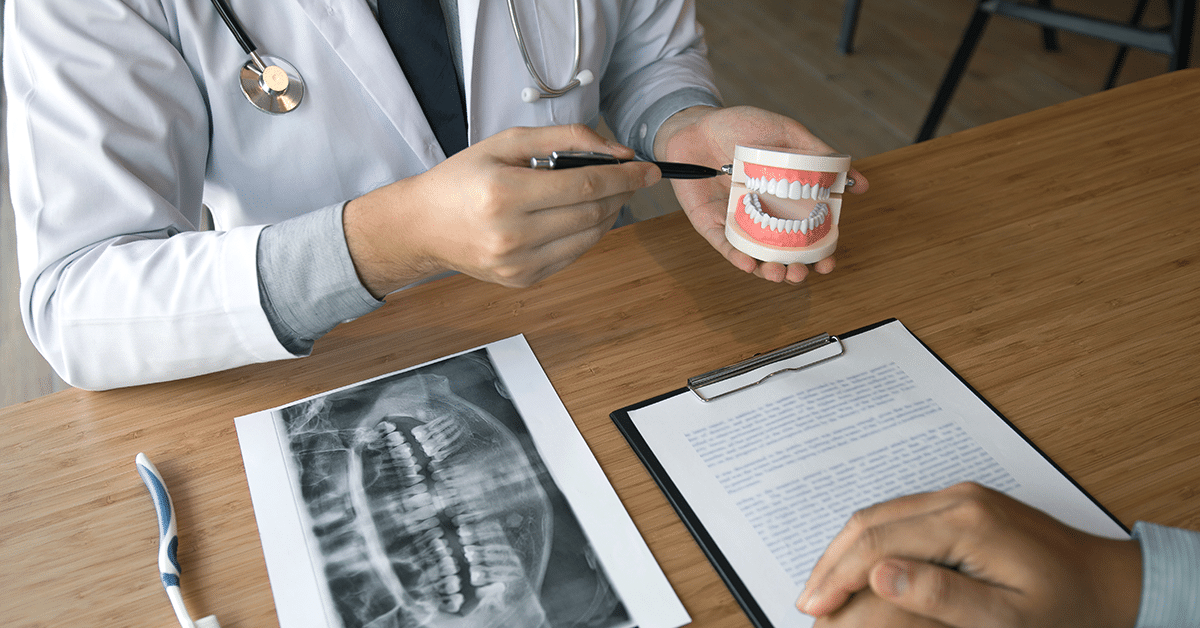A removable partial denture usually consists of replacement teeth attached to pink or gum-colored plastic bases. If you have multiple missing teeth but still have several healthy strong teeth remaining in your mouth, a removable partial denture (RPD) may be a good option for you. A partial denture may have a metal framework and clasps that connect to your teeth, or they can have other connectors that are more natural-looking. In some cases, a removable partial denture is made to attach to your natural teeth with devices called precision attachments.
What to expect:
- In the beginning, your removable partial denture may feel awkward or bulky. This is normal, and you will eventually become accustomed to wearing it.
- Follow all instructions given by your dentist. Your denture should fit into place with relative ease. Never force the partial denture into position by biting down. This could bend or break the clasps.
- Your dentist will give you specific instruction about how long the denture should be worn and when it should be removed.
- If the denture puts too much pressure on a particular area, that spot will become sore. Your dentist will adjust the partial denture to fit more comfortably.
- Eating should become a more pleasant experience with dentures. Start out by eating soft foods that are cut into small pieces. Avoid foods that are extremely sticky or hard.
How to Care for Your Dentures
If you look after your dentures properly, they can last for a long time. Here are a few things you can do to ensure a longer lifespan for your dentures.
- Remove your dentures before going to bed every night, rinse them with warm water, and gently brush them with a soft-bristled brush and nonabrasive denture cleanser to remove food, plaque and other deposits.
Soak them every night
- To keep your dentures fitting properly, it is important for them to stay moist in order to maintain their shape. Following guidelines from the manufacturer, soak dentures overnight in a gentle soaking solution. Before putting dentures back into your mouth after soaking, make sure to thoroughly rinse again.
See your dentist regularly
- Your dentist can help to ensure your dentures stay properly fitted, as well as provide you with professional advice and medical help in case your dentures cause you any distress.
Adjustments
Over time, adjusting the denture may be necessary. As you age, your mouth naturally changes, which can affect the fit of the denture. Your bone and gum ridges can recede or shrink, resulting in a poorly fitting denture.
Dentures that do not fit properly should be adjusted by your dentist. Poorly fitting dentures can cause various problems, including sores or infections.
Maintain optimal oral health and keep dentures clean for years to come with these daily practices. Schedule a visit to our office to keep your dentures properly fitted and comfortable.







